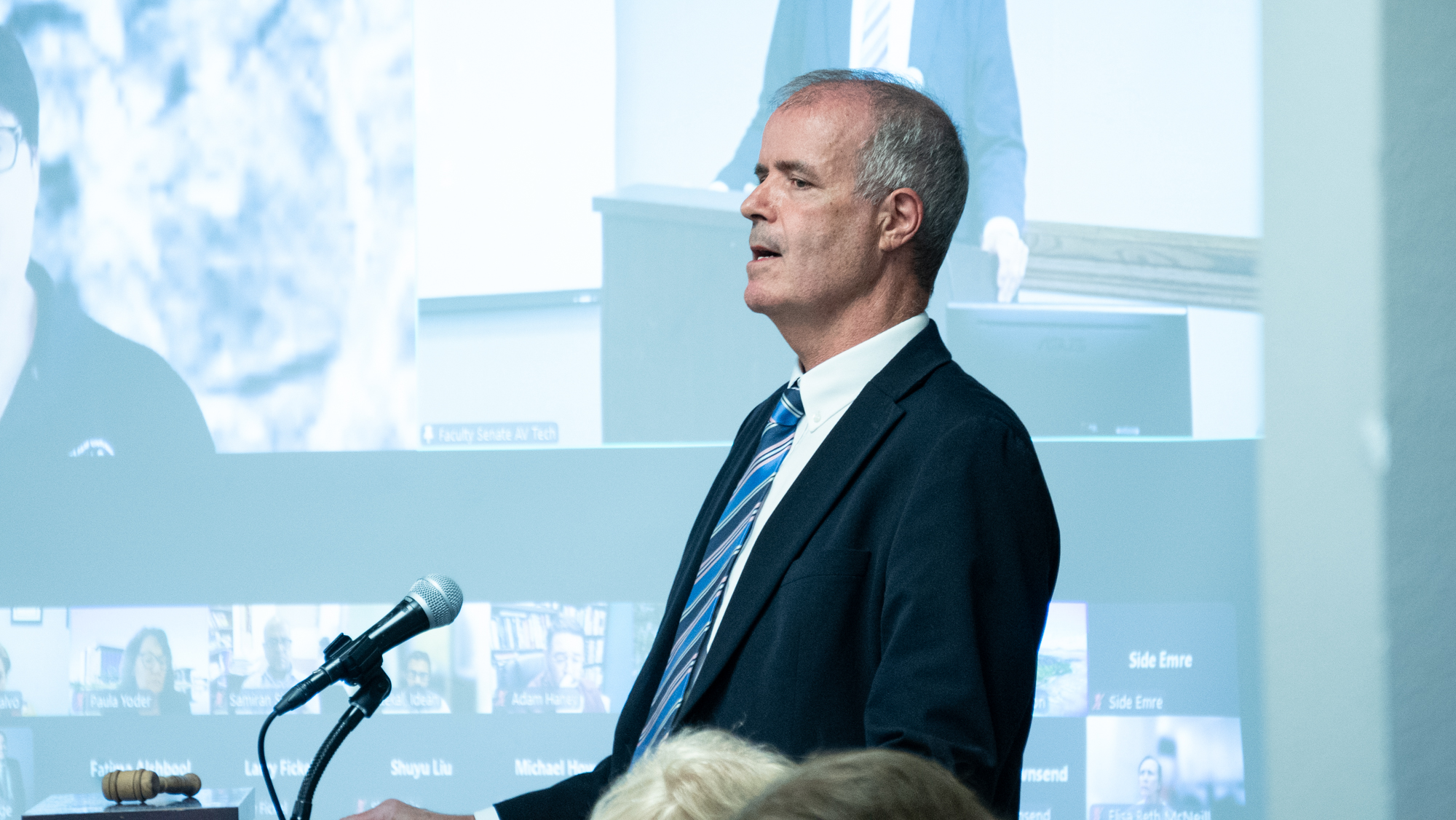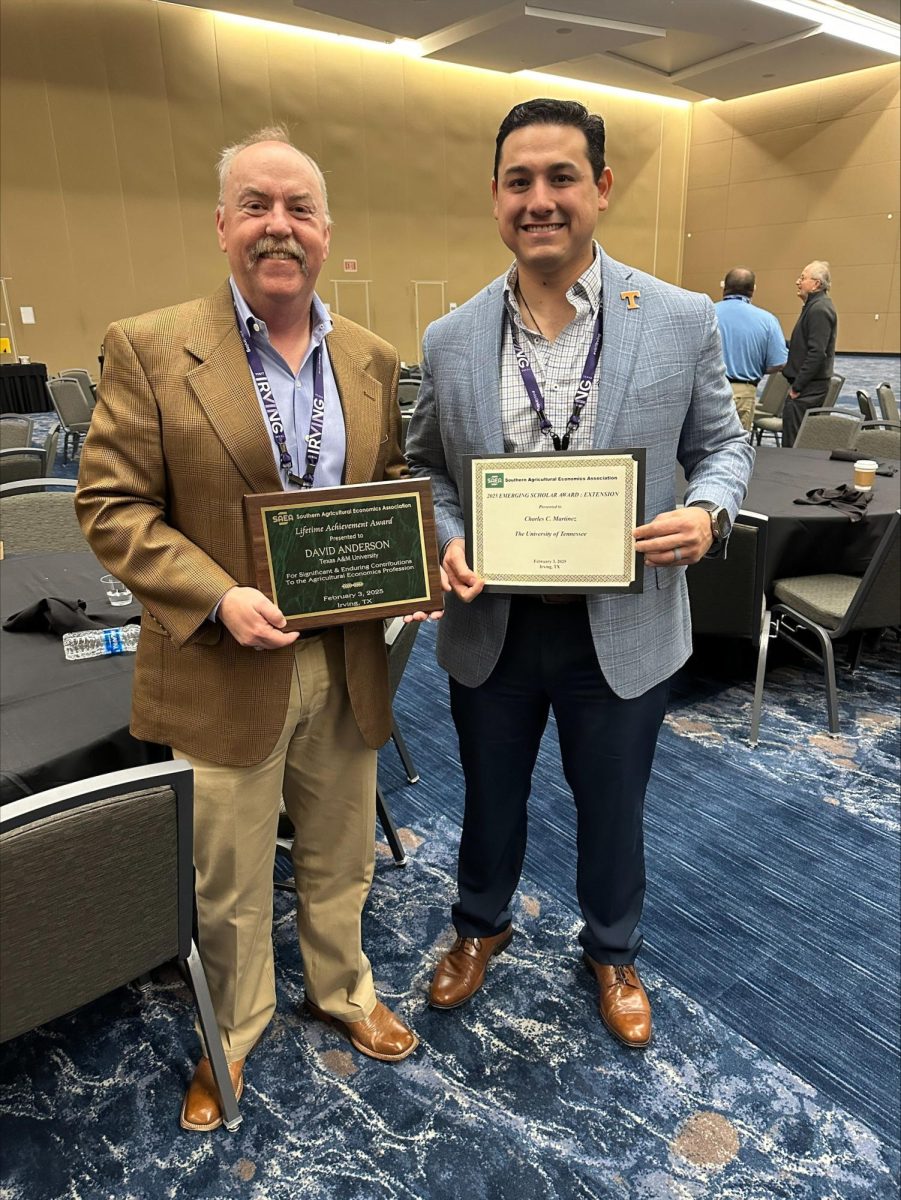Executive Vice President and Provost Alan Sams faced a critical Faculty Senate after appearing as a guest speaker to discuss his initiative to inactivate dozens of minors and certificates.
Sams appeared at the Oct. 14 meeting after weeks of faculty criticism surrounding his proposal to deactivate 52 of Texas A&M’s 320 minors and certificates due to low enrollment. Some faculty members claimed the initiative deviates from the set norm that program inactivations begin on the faculty level rather than an order from the provost, as is happening now.
“There’s a lot of questions about the process that was developed — as I understand at the request of Provost Sams — by a small group of deans,” Angie Hill Price, the speaker of the Faculty Senate, said.
Offering credentials not in demand diverts the university’s “finite resources,” Sams said. He said he had a responsibility to ensure programs justify their existence while noting he also “heard from elected officials” when discussing the inactivation’s origins. A statement previously shared with The Battalion said that in “June 2023, inquiries around the LGBTQ minor that had only a few enrolled students prompted the university to examine its programs.”
“We’ve been open about the fact that all those inquiries led us to examine how we’re evaluating the success of minors and certificates,” Sams said. “That initial outreach caused us to realize we had a minor that [had no students] in it at the time, and that caused us to look at all of them. As we found out, there’s many of them.”
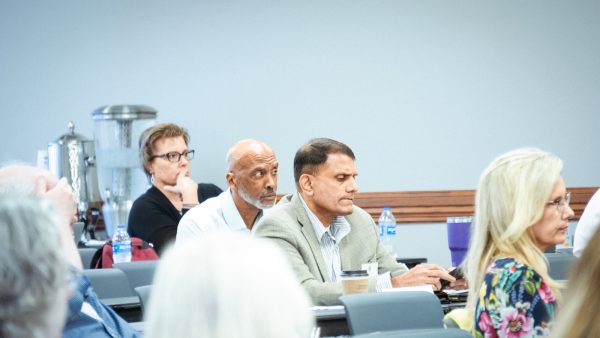
Sams claimed these minors and certificates divert institutional focus from other programs, saying he viewed it as a “wake-up call” that there was an area in need of administrative attention. As provost and vice president, Sams is second in command of the university and outranked only by President Mark Welsh.
Sams said he should have done a better job of directly engaging with faculty and the senate before pushing the proposal through. Only deans were engaged in the process of creating the thresholds, and most faculty learned of the inactivations only when directed to begin the inactivation process in August and September.
When asked by Price whether the process would be halted or reevaluated, Sams did not answer and said he was only attending the senate meeting to receive feedback from faculty before a meeting with Welsh to decide the proposal’s future.
When asked by Price whether his office conducted a review of students in pursuit of a minor rather than only those who declared it, Sams said they hadn’t because there was “not a reliable and executable” way to do so.
The floor opened for questions or statements from faculty senators, beginning with Raymundo Arroyave, a professor in the Department of Materials Science and Engineering, who questioned Sams about students who are pursuing but have not yet declared a program.
“We could have students that are counting on these certificates because, for example, there’s one certificate in my department that substitutes for a professional certification,” Arroyave said. “Getting rid of this certificate will imply significant costs to the students because if they don’t get the certificate at Texas A&M, they will actually have to pay potentially hundreds of dollars to register for courses once they graduate.”
Arroyave called the proposals “rushed, without consultation with anyone in a top-down way that doesn’t respect shared governance.” When professor Anthony Cahill asked if he could put a quantifiable number to the money saved, Sams said his office was unable to do so.
“It’s one thing to look at the instructional time, but there’s advisors and registrars and recruiters and a lot of different people that are involved in some aspect of maintaining or offering certificates and minors,” Sams said. “ … While we might be able to chase down a number, I didn’t have a lot of reliability or defendability about whatever we would come up with.”
Throughout the meeting, Sams said that rather than monetary cost, the proposals are “about focus” and A&M aims to “do bigger and better things.”
“The first time I asked about this, I was assured that this was being done because there was a cost associated with these things,” Price said. “And I’ve asked several people involved with this process, and I was assured that there was a cost associated with that. So I’m struggling with that as well.”
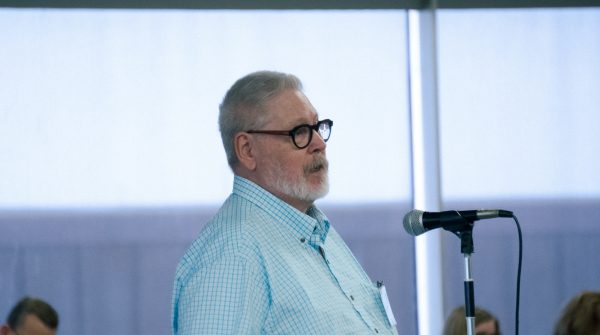
Professor Dale Rice, former speaker of the senate, said the process has involved a series of failures that harm shared governance and transparency — the latter being “an issue for years.”
“I would have hoped that we had some things happen in the past from which we would have learned lessons that transparency is a good thing,” Rice said. “But I think we still haven’t learned that lesson, and it disappoints me.”
Professor Andrew Klein, the senate’s speaker-elect, said the programs founded two years ago that are now part of the inactivations were not provided a chance to grow — especially those that began alongside the disruptive launch of the combined College of Arts and Sciences.
Price reminded Sams and the senators of her Oct. 2 email, where she called the inactivation process and implementation “deeply flawed” and asked for the initiative to be “completely abandoned” in favor of a faculty-led process.
Professor Heather Klein said the inactivation process including programs founded in fall 2022 is a mistake and “strongly” recommended that programs less than five years old be exempt. Regarding the LGBTQ minor, Klein said because the program would only be shown in the catalogs for new transfer students and freshmen, low enrollment is “completely to be expected” as it builds momentum.
Sams said the two-year time was chosen because it was reflective of the time minors take to complete, but Price disagreed.
“A minor is five classes, potentially six classes,” Price said. “A student wouldn’t take those in one or two years, necessarily.”
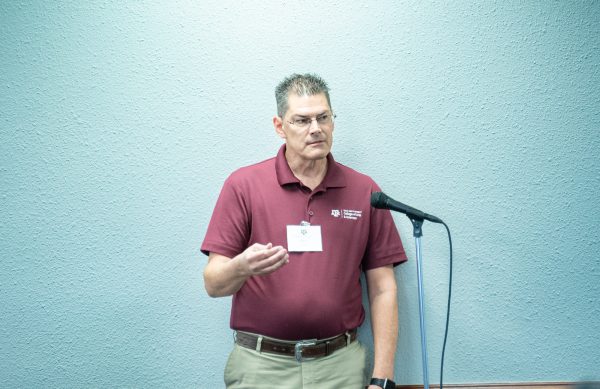
Professor Andrew Tag criticized the Office of the Provost’s requirement saying departments are not allowed to enroll students in the programs — a break of the status quo, he said.
“Allowing students to continue to go into these programs just exacerbated the situation until we got it resolved,” Sams said.
Tag responded quickly, asking why student enrollments would be an issue. Sams said the enrollments would be forced and not reflective of true student interest.
“You’ve been here for 37 years, and can you help me understand why faculty were explicitly left out of this curricular process?” Professor Adam Haney said when given the stand. “You know that faculty are a part of that, sir. Why were we left out of this consultative process?”
Sams responded that he was “here now” and that he had hoped to rely on deans to work and communicate with specific programs and departments.
“I’m also a little confused because this went out as a done deal directive, and now you’re here saying that we need to go back and review the process,” Haney said. “If that’s the case, doesn’t that mean the [inactivations] should be put on pause until you adequately gather all of this feedback?”
Professor Leonard Bright asked Sams to what degree external political pressure influenced the decision to begin ending programs.
“I can say that that didn’t have any bearing on it at all,” Sams said. “… but that contact inquiring about this particular program was really what caused us to look at other minors and certificates for what enrollment they had.”
Sams confirmed that he decided to pursue the inactivations himself when asked by Price. A follow-up question also confirmed that, with consultation from deans, Sams was the sole decider of whether an appeal to save a program was successful. As previously reported by The Battalion, he denied at least 12 appeals made by colleges to save specific programs.
Professor Sarah Beck stepped up to express concern about the precedent the inactivations set, specifically mentioning Republican State Rep. Brian Harrison’s social media posts taking credit for the inactivation of the LGBTQ minor. Harrison has been advocating for the minor’s end for months, claiming it wasted taxpayer money. Upon learning it was included in the inactivations, he began taking credit for it online and in several conservative-leaning outlets.
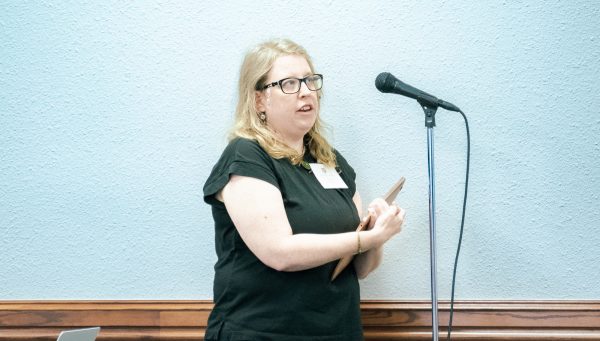
However, the process used to inactivate the LGBTQ minor began development in August 2023 after inquiries in the previous summer. When answering a question, Sams said he met with Harrison to discuss the minor in January.
“How are we going to provide a counter narrative to that and ensure other people who are not part of the shared governance are taking credit for decisions?” Beck said. “I’m also very concerned for our LGBTQ students and what message this sends to them — that a state representative removed a minor that directly relates to their identity.”
Sams said he will consider a statement when he discusses the next steps with Welsh and Price. When asked why one hadn’t been made already, Sams said they “tend to allow processes like this to play out” before commenting, “because it can be seen as trying to sway this conversation.”
Upon further inquiries, Sams said the initial June 2023 inquiries into the LGBTQ minor came in the form of online articles and posts on the social media platform X. He did not remember specific posts.
“I am having some concerns about decision-making processes that are precipitated or driven by Tweets and articles — and perhaps by nameless people,” professor Grace Townsend said.
Sams pushed back against the claim, insisting that he paid attention solely to “the performance of the university and the enrollment in the programs.”
“I’ve said all along that this is driven by the realization that we had a quarter of our certificates and minors with, according to the registrar, very few students or none at all for, in many cases, several years,” Sams said. “That’s what drove the decision to go down this path.”
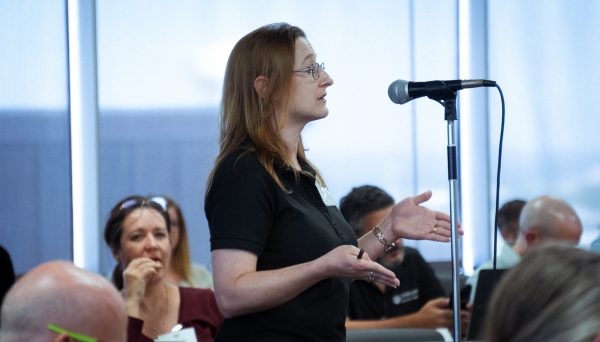
Each inactivation must be approved by the Faculty Senate to proceed, so Sams was asked by multiple senators whether he would concede if the group denied certain programs.
“If this body decides, as faculty who are in charge of the curriculum, to pull an inactivation from the consent agenda because we as the faculty see value in the program, will you honor that decision as faculty?” Klein asked.
Sams said that is a decision he and Welsh will make after reviewing the feedback.
“If the Faculty Senate decides to remove your proposal in whole or in parts from our consent agenda, will you respect our decision?” Bright said.
Again, Sams said the feedback is vital so he “can make those kind of decisions going back and talking to the president.”
“So you won’t commit to respecting our decision?” Bright said.
Sams affirmed that he was there for information only.
“I’m not here to make a final decision about anything,” he said.
The only programs impacted by the provost’s proposals were already set for inactivation by the faculty, so senators did not remove them from the consent agenda. However, senators tabled the inactivation of the analytics certificate from the Mays Business School until the next meeting to get more information on whether it is a faculty or provost decision.
The meeting adjourned at 5:23 p.m. The next Faculty Senate meeting is Nov. 11.


